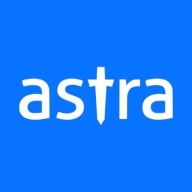

SonarQube Cloud and Astra Pentest compete in the software security category. Astra Pentest has the upper hand with its comprehensive security testing capabilities, covering a broader scope of vulnerabilities.
Features: SonarQube Cloud provides robust code quality analysis, CI/CD pipeline integration, and automated code review. Astra Pentest offers detailed vulnerability assessments, manual and automated security testing, and real-time risk insights.
Ease of Deployment and Customer Service: SonarQube Cloud ensures straightforward deployment through its cloud-based platform and seamless integration with development tools, backed by professional support. Astra Pentest features a simple cloud-based setup with rapid deployment and user-friendly operation, complemented by excellent customer service and immediate support for security issues.
Pricing and ROI: SonarQube Cloud aligns its pricing with integration capabilities, presenting a good ROI for teams focused on code quality and automation. Astra Pentest offers competitive pricing for its full-range security testing features, providing significant ROI through vulnerability prevention and enhanced security assurance.
| Product | Market Share (%) |
|---|---|
| SonarQube Cloud (formerly SonarCloud) | 4.2% |
| Astra Pentest | 0.3% |
| Other | 95.5% |

| Company Size | Count |
|---|---|
| Small Business | 8 |
| Midsize Enterprise | 3 |
| Large Enterprise | 4 |
Astra Pentest is a powerful tool designed to enhance security measures by identifying vulnerabilities and weaknesses in systems or applications.
With its comprehensive vulnerability scanning, efficient reporting capabilities, and user-friendly interface, it is highly effective in conducting penetration testing and ensuring the robustness of digital infrastructure.
Users appreciate its ability to address potential security weaknesses, detailed reports, and intuitive design.
SonarQube Cloud offers static code analysis and application security testing, seamlessly integrating into CI/CD pipelines. It's a vital tool for identifying vulnerabilities and ensuring code quality before deployment.
SonarQube Cloud is widely used for its ability to integrate with tools like GitHub, Jenkins, and Bitbucket, providing critical feedback at the pull request level. It's designed to help organizations maintain clean code by acting as a quality gate. This service supports development methodologies including sprints and Kanban for ongoing vulnerability management. While appreciated for its dashboard and integration capabilities, some users find initial setup challenging and note the need for enhanced documentation. The recent addition of mono reports and microservices support offers deeper insights into security and code quality, though container testing limitations and false positives are noted drawbacks. Manual intervention is sometimes required to address detailed reporting, with external tools being necessary for comprehensive analysis. Notifications for larger teams during serious issues and streamlined integration of new features are also areas of improvement.
What are the key features of SonarQube Cloud?In specific industries, SonarQube Cloud finds application in finance and healthcare where code integrity and security are paramount. It allows teams to identify critical vulnerabilities early and ensures that software development aligns with industry regulations and standards. By continuously analyzing code, it aids organizations in deploying secure and reliable applications, fostering trust and compliance.
We monitor all Static Application Security Testing (SAST) reviews to prevent fraudulent reviews and keep review quality high. We do not post reviews by company employees or direct competitors. We validate each review for authenticity via cross-reference with LinkedIn, and personal follow-up with the reviewer when necessary.